Uneven Outcomes in the Labor Market
Understanding Trends and Identifying Solutions
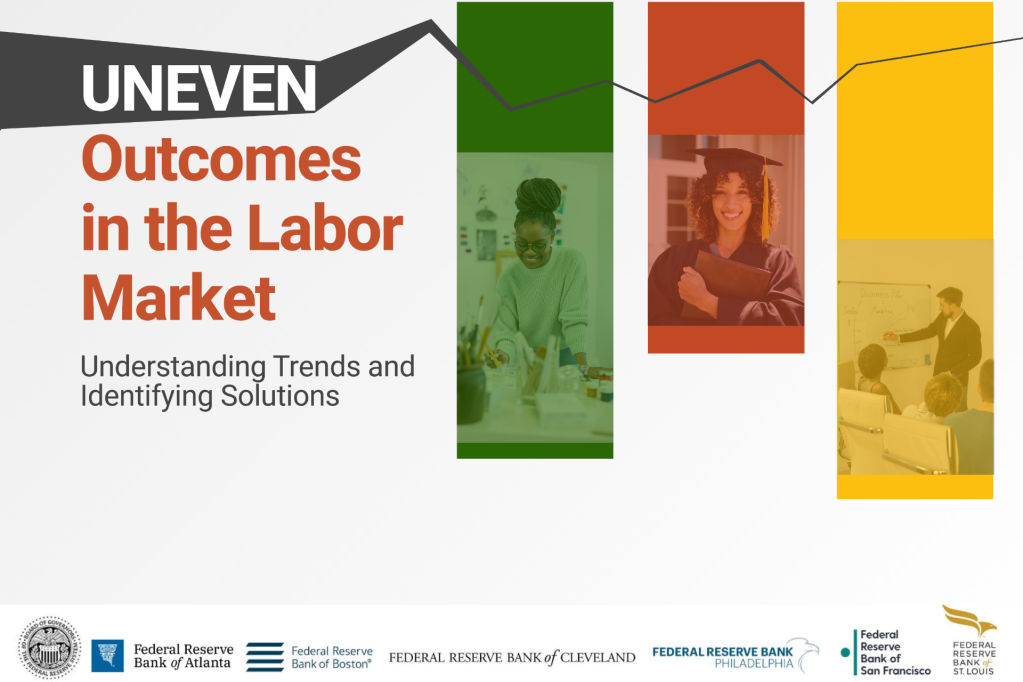
What’s It Worth to You? Returns to Education & Trainings
Speakers | February 5, 2024
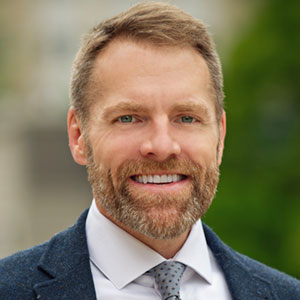
Peter Riley Bahr
Associate Professor
Center for the Study of Higher and Postsecondary Education, University of Michigan
Dr. Peter Bahr serves as Associate Professor in the Center for the Study of Higher and Postsecondary Education at the University of Michigan. Dr. Bahr is a nationally recognized scholar and expert on community colleges, student outcomes, and economic mobility. His research focuses on the role of public postsecondary institutions in creating and advancing educational and economic opportunities for socioeconomically disadvantaged students, marginalized students, students who are older than what is considered typical for undergraduates (i.e., adult-age students or older students), and citizens returning to society after incarceration.
The goals of his work are to improve college completion rates for these students and maximize the economic value of the credentials that they earn. A distinguishing feature of his work is close collaboration with state policymakers and institutional leaders to ensure that the work is directly informing policy development aimed at reducing inequality, achieving educational attainment goals, improving workforce opportunities, and strengthening state economic vitality and growth.
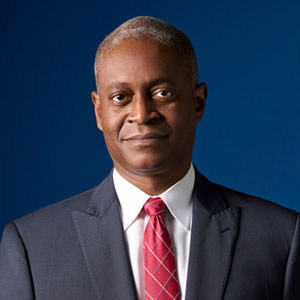
Raphael Bostic
President and Chief Executive Officer
Federal Reserve Bank of Atlanta
Dr. Raphael W. Bostic took office June 5, 2017, as the 15th president and chief executive officer of the Federal Reserve Bank of Atlanta. He is responsible for all the Bank’s activities, including monetary policy, bank supervision and regulation, and payment services. In addition, he serves on the Federal Reserve’s chief monetary policy body, the Federal Open Market Committee (FOMC). The Federal Reserve Bank of Atlanta serves the Sixth Federal Reserve District, which covers Alabama, Florida, and Georgia, and parts of Louisiana, Mississippi, and Tennessee. The Bank has branches in Birmingham, Jacksonville, Miami, Nashville, and New Orleans.
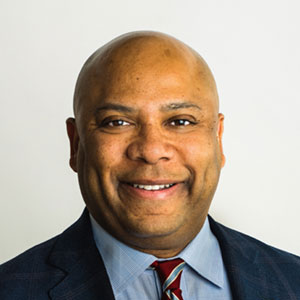
Earl Buford
President
CAEL
As the president of CAEL, Earl Buford oversees the national nonprofit organization’s work to promote sustainable and equitable economic growth for adult learners in collaboration with workforce and economic developers, post-secondary educators, employers, industry groups, foundations, and other mission-aligned groups. Before CAEL, Buford was the Chief Executive Officer of Partner4Work, the leader of the public workforce system for Pittsburgh and Allegheny County, as well as Employ Milwaukee, where he was nationally recognized for implementing and integrating a sector-based approach to workforce development. Buford was also the leader of one of the first intermediaries in the country, WRTP/BIG-STEP.
Buford is an active board member with several organizations, including the National Fund for Workforce Solutions, Apprenticeships for America, Pittsburgh Symphony Orchestra, Catalyst Connection, Bridgeway Capital, Cleveland Federal Reserve (Pittsburgh Chapter), and Strada Education Network’s National Strategic Advisory Group. He is a former member of Vice President Joe Biden’s Task Force on Effective Workforce Strategies, the National Network of Sector Partners, the Wisconsin Governor’s Task Force on Minority Unemployment, and the National Skills Coalition Advisory Board, among many others.

Justin Heck
Director, Research
Opportunity@Work
Justin Heck is a Senior Manager of Research at Opportunity@Work, a non-profit social enterprise focused on rewiring the U.S. labor market so that all individuals Skilled Through Alternative Routes (STARs) can work, learn, and earn to their full potential. In his role, Justin leads the organization’s research function to provide actionable insights to employers, practitioners, and policymakers about the ways in which STARs navigate skills-based mobility pathways, with ongoing projects about the role of the employer in improving worker mobility in a regional context and the levers available to address persistent occupational segregation in the labor market. Justin has spent the past decade studying racial and socioeconomic inequality and holds a PhD in Political Science from the University of Michigan.
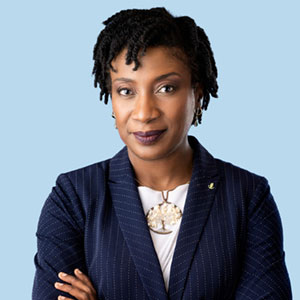
Nicole Smith
Research Professor and Chief Economist
Center on Education and the Workforce, Georgetown University
Nicole Smith is a Research Professor and Chief Economist at the Georgetown University Center on Education and the Workforce where she leads CEW’s econometric and methodological work. Dr. Smith has developed a framework for restructuring long-term occupational and educational projections. This framework forms the underlying methodology for a report that projects education demand for occupations in the US economy through 2030. She is part of a team of economists working on a project to map, forecast and monitor human capital development and career pathways. Her current research investigates the role of education and socioeconomic factors in intergenerational mobility. She is a co-author of “The Inheritance of Educational Inequality: International Comparisons and Fifty-Year Trends,” published in 2007 by the B.E. Journal of Economic Analysis & Policy.
Dr. Smith was born in Trinidad and Tobago and graduated with honors in Economics and Mathematics from the University of the West Indies (U.W.I.), St. Augustine campus. She was the recipient of the Sir Arthur Lewis Memorial Prize for outstanding research at the Master’s level at the U.W.I. and is co-recipient of the 2007 Arrow Prize for Junior Economists for educational mobility research. She received her PhD in Economics from American University in Washington, D.C.
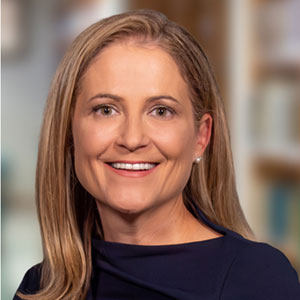
Laura Ullrich
Senior Regional Economist
Federal Reserve Bank of Richmond
Laura Ullrich is a senior regional economist at the Charlotte branch of the Federal Reserve Bank of Richmond. Previously, Ullrich was associate dean for undergraduate programs and a professor of economics at Winthrop University. She earned a bachelor’s degree in economics from the University of Georgia and a master’s and doctorate in economics from the University of Tennessee.
Prior to graduate school, she worked as a business consultant for Ernst & Young, specializing in executive compensation determination. In 2014, she served as a Fulbright Scholar teaching economics in Kosovo and has spent considerable time working on local economic development issues in Bolivia.
Ullrich’s research interests include higher education, school finance reform, local and state level tax and expenditure analyses, and the economic impact of local development. Ullrich is a member of the Aspen Institute Global Leadership Network via the South Carolina Liberty Fellowship. She is also an active member of her community, currently serving on the Executive Committee of the Charlotte Regional Business Alliance and the board of the Catawba Regional Council of Governments. She also serves on the board of Family Promise of York County and the Carolina Immigrant Alliance.

Tiffani Williams
Senior Adviser
Federal Reserve Bank of Atlanta
Tiffani Williams is a senior adviser for community and economic development within the Atlanta Fed’s Center for Workforce and Economic Opportunity. Leveraging expertise in research, policy, and practice, her work focuses on creating more robust pathways to economic mobility within our education and workforce systems. Williams brings over a decade of experience as a leader at impact-driven organizations including, most recently, Education Strategy Group (ESG), a national consulting firm, where she offered technical assistance for organizations–government agencies, philanthropies, and higher education institutions–looking to increase opportunities for learners to access and complete meaningful credentials. After starting her career as a counselor on a college campus, Williams went on to work for academic affairs at the University System of Maryland, providing guidance to local educators, practitioners, and other stakeholders on improving pathways to college and career. She also conducted evaluations and impact studies to address equity, affordability, and basic needs in higher education as a senior researcher at Temple University. She holds a PhD from New York University and a master’s degree from the University of Maryland–College Park, both in higher education..
About the Conference
In 2024, community development staff from the Federal Reserve Board of Governors and the Federal Reserve Banks of Atlanta, Boston, Cleveland, Philadelphia, San Francisco, and St. Louis are hosting a conference, Uneven Outcomes in the Labor Market: Understanding Trends and Identifying Solutions. The conference will convene a diverse network of researchers, policymakers, and practitioners to examine inequities in labor market outcomes and explore the implications of disparities on aggregate economic performance, individual workers, and communities. They will also discuss new directions for policy and research.
